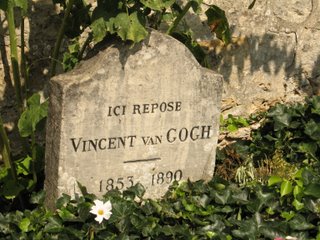You know what the last post was really about--I didnt know what is was about until very recently--it's about people who define themselves in a certain and only think in that certain way.
I'm in this seminar about Francophone Sub-saharan Africa. It's ok, some good readings and one particularly inspired book that has got me interested in writing again (hey posts). It's a solid topic, good stuff about orientalism and cultural hybridities and some decent academic concepts that don't make me want to vomit (like agency). But it has seven women grad students (one guy but he's forgettable). And they are what I hate about school. What made me say I'd never come back for so long and what is pushing me away everyday I consider any sort of grad school.
They show up with at least 4 scarves among them. Three of them always have a scarf--those are the worst--and then the last scarf rotates among the others. Scarves are important I've found. They are some sort of talisman that emits douchebaggery. That mystery 4th grad student who wears the scarf on that particular day seems to adopt the nausea-enducing power of the others.
Anyway these scarf-wearing students just go on and on and on about some form of racism or social injustice or they just pick some offensive piece of literature and go the fuckk offfffff about it. It's usually Heart of Darkness, but at this point we've just accepted as a class that Conrad is the reason for all the problems in the world.
Occasionally they'll go the other direction. They'll pick a native politician from the 60s who stood up against France or Britain and refused their tryanny. They will talk about him like churchgoers talk about Jesus. They are practically turned on at points (that's probably beyond what happens at church). Anyway, it's left at that. They pick the devils and the saviors, and we go home to another set of interesting readings that won't really get discussed.
The core of the class is really strong. There's lots of smart, inquisitive people with a lot of background in Africa. They understand the mechanics of its history and how they continue today. The readings support this and offer a lot of strong analysis. But I've never discussed because we're busy killing the bad and celebrating the good. They're wasting my time and my brain power and I loathe them for it, though this by itself is not why I am hesitating about doing any kind of grad school (history, urban design, edu, french, what-the-fuck-ever). No, that is so because I tried talking to them.
With normal people, even grad students (who can be very cool, just as anyone else can) I can usually talk about any number of subjects. Music, food, movies, cars, sports, rent, girls, architecture, funny habits they have, pollution, anything. This is why I love people. They force me to think thoughts outside of what I could grasp without them. That's why I force myself to interact. To learn or remember or change. These people do/think/feel/say/breathe nothing except for a very narrow range of thought, usually whatever the dissertation is on. So in line at the coffee shop, hoping for some enlightening conversation with someone who I would hope is smarter than me, I was drowned in dissertation talk.
Now, don't get me wrong, I love dissertation talk as much as the next guy. I love research and finding out new things, especially if it's something that has current application. I once talked to a geography student about how architecture in Mongolia/China is making their transition to urbanization so difficult AND--here's the key--how to improve the current situation. Oh praxis, how I love thee. Oh people informing others and what's wrong with the world and what can be done. It is such a lovely idea, yet so rare in our white plastic towers. I even think telling the untold or even the forgotten story is quite worthwhile if it engages people towards other problems. Even if that sorta forgotten story/idea just gives the reader pause, I think it's a worthy venture. However, I was not in for one of these sorts of dissertations.
I can't even really remember. Something about this guy and how he did this and it was bad and people who said he was were right. No mention of anything that could impact or even interest anyone. It was just what I have come to call "Offensive Studies." The problem for searching for what is "offensive" is not in the search itself, its stopping the search once you've found the politically incorrect object. Offensive objects don't create problems in and of themselves--they are reflective of problems. CAUSALITY!!! It is so easily forgotten.
***
This I transition in my problem of Judgement. Judging can be done in any direction with any purpose and any degree of malice. It is always bad. It's not avoidable sometimes, but it can be minimized. I think I used to be more judgemental, but I've seen how little purpose it provides. Occasionally it is avoidable. Sometimes it even is necessary. But most of the time it is our instinct. Now that I'm thinking about it "judging" is a very vague term. Moral claim or opinion or something like that might also work, but I can't quite grasp it. Maybe it's a judgement that does not help, only hurts. Obviously those offensive objects were judgements to begin with, and they were wrong. But after they were established as wrong, continuing to judge and judge and judge does no more good. The only good from the original object can come from erradicating its cause.
I am sick of myself.

